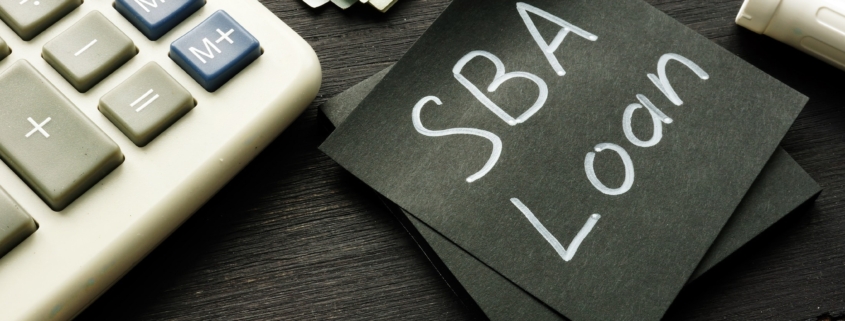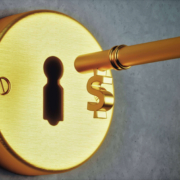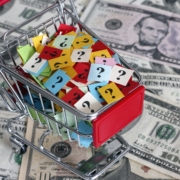What Are SBA Loan Collateral Requirements?
KEY TAKEAWAYS
- There are multiple types of SBA Loans, including 7(a), SBA Express Loans and EIDL Loans. SBA loans, the most popular of which is the 7(a) loan, will typically use assets like real estate and inventory as collateral for security.
- SBA loans, the most popular of which is the 7(a) loan, will typically use assets like real estate and inventory as collateral for security.
- SBA EIDL loans, designed for disaster relief, may require collateral for loans over $25,000 based on individual circumstances.
Those seeking an SBA loan are likely familiar with the association’s sometimes confusing collateral requirements. Small business owners are required to name some amount of collateral when applying for an SBA loan, but it can be difficult to determine ahead of time how much collateral may be expected to finalize a loan or what necessarily constitutes collateral.
While there are several kinds of SBA loans, most common are 7(a) loans. Another kind of SBA loan currently in high demand is EIDL (Economic Injury Disaster Loans). While 7(a) loans can be requested for any reason, EIDL are specifically disaster loans which have recently gained prominence as a form of pandemic relief. EIDL and 7(a) loans both have different collateral requirements. This article will explore exactly what each of these loan types require from borrowers in the form of collateral as well as other requirements of note.
What Constitutes Collateral?
Before discussing collateral requirements, it is important to understand exactly what collateral is and what lenders and the SBA generally consider acceptable forms of collateral. Collateral, in its simplest forms, is an asset that a lender accepts as a form of security on a loan in the event of non-payment or a default.
Examples of Generally Approved SBA Loan Collateral include:
- Commercial or personal real estate
- Accounts receivable
- Standing inventory
- Business vehicles
- Equipment, and machinery
SBA 7(a) Loan Collateral and Requirements
SBA 7(a) loans are one of the most frequently sought loans by American small business owners and fall under three categories: Standard (7a), 7(a) Small Loans, and SBA Express. All collateral policies for 7(a) Small Loans and Express Loans are also true for Standard 7(a) loans up to $350,000.
7(a) Collateral Requirements
- Loans up to $25,000 are unsecured and require no collateral.
- Loans between $25,000 and $350,000 must follow collateral policies for similarly-sized non-SBA-guaranteed commercial loans.
- Loans larger than $350,000 require the maximum amount of collateral possible from the borrower to fully secure a loan. The borrower must meaningfully demonstrate they have put forward all available collateral.
- If a lender believes fixed assets do not fully secure a loan, they may also consider trading assets at 10% current book value.
Notable Variations
Both 7(a) Small Loans and SBA Express loans offer up to $350,000, but the SBA will only guarantee up to 50% of the loan amount for Express Loans. Guarantees for Small Loans are either 85% for loans up to $150,000 and 75% for loans greater than that.
7(a) Loan Additional Information
Applicants for SBA 7(a) loans must agree to an ABA (All Business Assets) lien. This means that all of an applicant’s business assets will be put as collateral for the SBA 7(a) loan. 7(a) applicants may also be subject to a UCC-1 (Universal Commercial Code) lien which gives a lender the legal right to access a business’s assets in the event a business defaults on their loan.
In addition to collateral, every person who owns at least 20% of an applying business must also sign a personal guarantee when seeking SBA 7(a) financing. A personal guarantee is an acknowledgement that the party signing is personally responsible for paying back a loan. Personal guarantees are essentially extensions of collateral. Instead of naming specific assets, however, an applicant agrees to use any assets necessary to pay back the loan.
When applying for an SBA 7(a) loan the lender will have the applicant fill out the “SBA Eligibility Questionnaire for Standard 7(a) Guaranty.” Which allows a lender to individually assess if an applicant has sufficient holdings to secure collateral.
SBA EIDL Loan Collateral Requirements
Unlike 7(a) loans, the SBA EIDL (Economic Injury Disaster Loan) program is exclusively distributed to small businesses that are suffering from a temporary loss of revenue due to a declared disaster. The EIDL program is currently accepting applications from businesses affected by the COVID-19 pandemic. The EIDL program has different collateral requirements than a 7(a) loan, notably because EIDL is a form of aid. Loans made through the EIDL program under $25,000 are still unsecured. Loans over $25,000, however, will require some form of collateral. Because the program often deals with disaster relief, the EIDL program will not turn away an applicant because they do not have a certain collateral value. If an applicant pledges the collateral available to them, a lender will often consider that collateral sufficient.
EIDL program applicants seeking loan amounts greater than $25,000 must also consent to a UCC-1 lien being placed on their business. Businesses applying to the EIDL program requesting more than $200,000 also require a personal guarantee from each person with a 20% or more stake in the business.
Collateral Overview
The SBA intentionally leaves collateral requirements vague in all loan programs. Necessary collateral is determined on an individual level between a lender and an applicant. More important than a dollar amount, however, is a business owner’s ability to demonstrate that they are committed to repaying a loan. Collateral in combination with personal guarantees and UCC-1 liens are mechanisms to assure loan programs are not taken advantage of or used unnecessarily.
Laying out strict financing requirements and cutoffs ignore the nuance of small business and may needlessly dissuade applicants. The most important step for a small business seeking a loan is discussion with a trusted financing expert. If your small business is interested in learning more about SBA loans and funding opportunities, get in touch with a Kapitus financing expert who can assess your options based on your unique situation.







